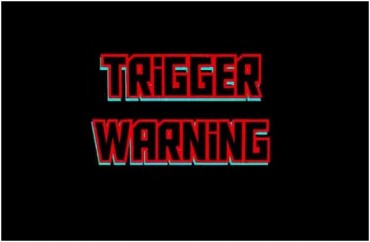
A recent study by Harvard University psychologists suggests the very thing academics use to protect their students from possible trauma … may actually end up harming them.
So-called “trigger warnings,” Benjamin Bellet, Payton Jones, and Richard McNally say, can increase folks’ “perceived emotional vulnerability to trauma, peoples’ belief that trauma survivors are vulnerable,” and the “anxiety to written material perceived as harmful.”
Their findings were published in the Journal of Behavior Therapy and Experimental Psychiatry.
As The Daily Wire reports, the trio divided almost 300 subjects into two groups, one of which was given a trigger warning “before reading each of 10 passages from classic literature.” Half of those passages contained “explicit material” such as graphic depictions of killings.
The trigger warning group “proved far more likely to suggest passages containing distressful language would cause themselves and others emotional distress had they experienced trauma.”
Social psychologist Craig Harper wrote at Medium that the results of this study could have far-reaching cultural effects.
“This finding could have significant implications in the context of ongoing cultural debates about the power of language in reinforcing perceived oppression,” Harper wrote. “That is, if we are telling students that words are akin to violence and can cause harm, and then giving them trigger warnings to compound that message, we risk increasing immediate anxiety responses rather than decreasing them.”
Harper notes that the study is limited in its scale, and its use of non-students and exclusion of participants who had experienced trauma.
But he notes that the research lines up with the writing of Greg Lukianoff and Jonathan Haidt, who in 2015 wrote an article in The Atlantic claiming that trigger warnings would result in mental health damage. Part of the problem Lukianoff and Haidt found was that “trigger warnings” allowed students to avoid material that may upset them, which would further their fears and prevent them from healing.
Harper adds trigger warnings serve to “infantilize” those from “marginalized” groups — professors, et. al. assume racial and other minorities might become offended … so they have to “protect” them.
MORE: Prof. triggered by students’ ‘fake news’ event
MORE: 9/11 memorial banned due to ‘triggering’ effect
IMAGE: YouTube
Like The College Fix on Facebook / Follow us on Twitter





Please join the conversation about our stories on Facebook, Twitter, Instagram, Reddit, MeWe, Rumble, Gab, Minds and Gettr.